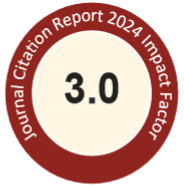Abstract
Processing of Chinese medicines is a pharmaceutical technique that transforms medicinal raw materials into decoction pieces for use in different therapies. Various adjuvants, such as vinegar, wine, honey, and brine, are used in the processing to enhance the efficacy and reduce the toxicity of crude drugs. Proper processing is essential to ensure the quality and safety of traditional Chinese medicines (TCMs). Therefore, sound knowledge of processing principles is crucial to the standardized use of these processing adjuvants and to facilitate the production and clinical use of decoction pieces. Many scientific reports have indicated the synergistic effects of processing mechanisms on the chemistry, pharmacology, and pharmacokinetics of the active ingredients in TCMs. Under certain conditions, adjuvants change the content of active or toxic components in drugs by chemical or physical transformation, increase or decrease drug dissolution, exert their own pharmacological effects, or alter drug pharmacokinetics. This review summarizes various processing methods adopted in the last two decades, and highlights current approaches to identify the effects of processing parameters on TCMs. © 2018
ScienceDirect Link
Recommended Citation
Chen, L.-L.; Verpoorte, R.; Yen, H.-R.; Peng, W.-H.; Cheng, Y.-C.; Chao, J.; and Pao, L.-H.
(2018)
"Effects of processing adjuvants on traditional Chinese herbs,"
Journal of Food and Drug Analysis: Vol. 26
:
Iss.
2
, Article 2.
Available at: https://doi.org/10.1016/j.jfda.2018.02.004
Creative Commons License

This work is licensed under a Creative Commons Attribution-Noncommercial-No Derivative Works 4.0 License.
Fulltext URL
https://www.sciencedirect.com/science/article/pii/S1021949818300486/pdfft?md5=e5fd93b1f7f7823d4e68e6378f366619&pid=1-s2.0-S1021949818300486-main.pdf
Included in
Food Science Commons, Medicinal Chemistry and Pharmaceutics Commons, Pharmacology Commons, Toxicology Commons

